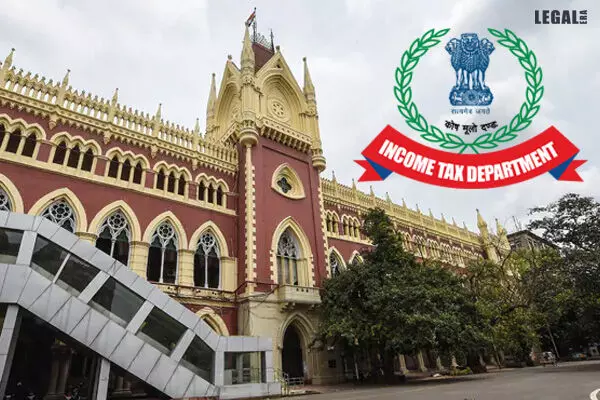- Home
- News
- Articles+
- Aerospace
- Artificial Intelligence
- Agriculture
- Alternate Dispute Resolution
- Arbitration & Mediation
- Banking and Finance
- Bankruptcy
- Book Review
- Bribery & Corruption
- Commercial Litigation
- Competition Law
- Conference Reports
- Consumer Products
- Contract
- Corporate Governance
- Corporate Law
- Covid-19
- Cryptocurrency
- Cybersecurity
- Data Protection
- Defence
- Digital Economy
- E-commerce
- Employment Law
- Energy and Natural Resources
- Entertainment and Sports Law
- Environmental Law
- Environmental, Social, and Governance
- Foreign Direct Investment
- Food and Beverage
- Gaming
- Health Care
- IBC Diaries
- In Focus
- Inclusion & Diversity
- Insurance Law
- Intellectual Property
- International Law
- IP & Tech Era
- Know the Law
- Labour Laws
- Law & Policy and Regulation
- Litigation
- Litigation Funding
- Manufacturing
- Mergers & Acquisitions
- NFTs
- Privacy
- Private Equity
- Project Finance
- Real Estate
- Risk and Compliance
- Student Corner
- Take On Board
- Tax
- Technology Media and Telecom
- Tributes
- Viewpoint
- Zoom In
- Law Firms
- In-House
- Rankings
- E-Magazine
- Legal Era TV
- Events
- Middle East
- Africa
- News
- Articles
- Aerospace
- Artificial Intelligence
- Agriculture
- Alternate Dispute Resolution
- Arbitration & Mediation
- Banking and Finance
- Bankruptcy
- Book Review
- Bribery & Corruption
- Commercial Litigation
- Competition Law
- Conference Reports
- Consumer Products
- Contract
- Corporate Governance
- Corporate Law
- Covid-19
- Cryptocurrency
- Cybersecurity
- Data Protection
- Defence
- Digital Economy
- E-commerce
- Employment Law
- Energy and Natural Resources
- Entertainment and Sports Law
- Environmental Law
- Environmental, Social, and Governance
- Foreign Direct Investment
- Food and Beverage
- Gaming
- Health Care
- IBC Diaries
- In Focus
- Inclusion & Diversity
- Insurance Law
- Intellectual Property
- International Law
- IP & Tech Era
- Know the Law
- Labour Laws
- Law & Policy and Regulation
- Litigation
- Litigation Funding
- Manufacturing
- Mergers & Acquisitions
- NFTs
- Privacy
- Private Equity
- Project Finance
- Real Estate
- Risk and Compliance
- Student Corner
- Take On Board
- Tax
- Technology Media and Telecom
- Tributes
- Viewpoint
- Zoom In
- Law Firms
- In-House
- Rankings
- E-Magazine
- Legal Era TV
- Events
- Middle East
- Africa
Calcutta High Court Rejects Income Tax Department's Appeal Citing Low Tax Effect

Calcutta High Court Rejects Income Tax Department's Appeal Citing Low Tax Effect
The Calcutta High Court has dismissed the Income Tax Department’s appeal on the ground of low tax effects.
The Bench consisting of Chief Justice T.S. Sivagnanam and Justice Ajay Kumar Gupta noted that the cumulative tax amount was below ₹1 crore, aligning with the threshold set by the Central Board of Direct Taxes (CBDT).
The appellant, representing the department, had raised a query regarding whether the Income Tax Appellate Tribunal (ITAT) made an error in employing the principle of consistency despite the absence of Transfer Pricing proceedings in prior Assessment Years (AYs). Furthermore, the appellant questions whether the ITAT adequately grasped the notable dissimilarity in profitability between eligible and non-eligible units while sanctioning deductions under Section 80IC.
The respondent, representing the assessee, contended that the tax implication in the current scenario is below ₹1 crore, specifically ₹65,05,587. As a result, the department is precluded from pursuing this appeal based on the criterion of a low tax effect.
The Court observed that the deduction under Section 80IC, calculated at 30 per cent of the profit, amounts to ₹2,13,11,566, contrasting with the assessee's assertion of ₹4,10,25,466. If the latter figure is considered, the resultant tax effect would fall below the threshold of ₹1 crore. Nevertheless, upon reviewing the order issued by the Commissioner of Income Tax (Appeals), the tax amount was specified as ₹1,03,10,590.
The Court established that the tax sum mentioned in the CIT (A)'s verdict as ₹1.03 crores is an instance of computational error.
The Court decreed that with the total tax amounting to ₹80,05,462, it becomes evident that the tax impact in this particular case falls below the threshold limit stipulated by the CBDT. Consequently, the revenue is precluded from proceeding with this appeal.



